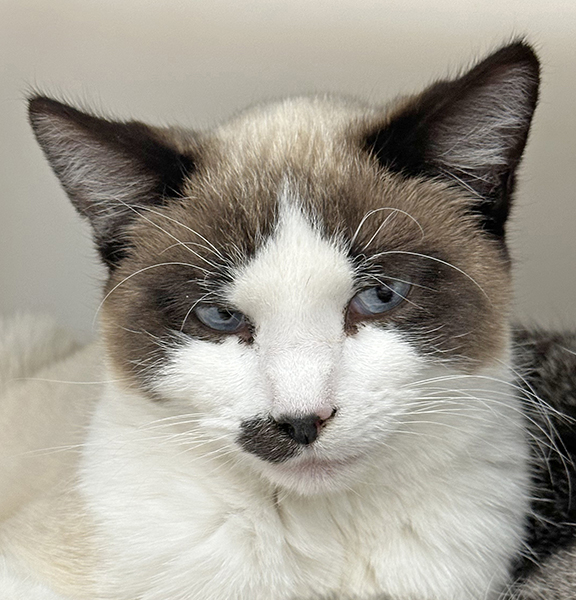
23 May Second Chance: Safe Gardening with Pets!
For 30 years, the Animal Resource Center and Shops of Second Chance Humane Society have been serving Ouray, San Miguel, and Montrose Counties. Our adoption hours are from Wednesday to Sunday, 11 a.m. to 5:30 p.m. View shelter pets and services online atwww.secondchancehumane.org. Connecting Pets, People, and Community While Saving Lives.
View shelter pets and services online: www.adoptmountainpets.org.
Donate here or mail to: PO Box 2096, Ridgway, CO, 81432.
Go here for more options from Second Chance
A few weeks ago we talked about the hazards of weeds that could harm your pet. But, what about the things you might plant or use in your yard or garden? Some common flowering plants can be dangerous, if not lethal, to companion animals. Bulbs such as tulips, hyacinths, iris, crocus, and daffodils pose a threat to pets. If a dog or cat eats bulbs, they might experience vomiting, diarrhea, drooling, and (rarely) seizures.
Lilies are of most concern for cat families. If a cat ingests any part of Asiatic or daylilies, that can cause serious damage to their kidneys.
Fruiting vines such as grapes can cause problems if a dog or cat eats the fruit, especially in large quantities.
In the fall, common acorns are a concern for dog parents. They contain a chemical toxic to dogs. If eaten, acorns can cause an upset stomach and also lead to liver and kidney failure and be fatal. It is even possible for acorns to cause a blockage of the intestines in smaller dogs.
Vegetable gardening also presents dangers for pets.
Veggies in the Allium genus, such as onions, garlic, and chives, should be kept away from your animals. When eaten in sufficient quantities, they can damage the red blood cells of dogs and cats, causing serious health concerns.
If you’re adding herbs to your vegetable garden, avoid planting mint. Mint is toxic to both cats and dogs due to its essential oils. If your pet ingests enough mint, vomiting and diarrhea will follow.
Some vegetables are poisonous under certain circumstances, but perfectly healthy in others. For instance, tomato plants and unripe tomatoes are toxic, but ripe tomatoes can be safe, non-toxic treats. Similarly, raw potatoes may be problematic for your pet, but cooked they are fine in moderation. Rhubarb leaves and green stalks can cause tremors, diarrhea, vomiting, and weakness. However, ripe, red stalks of a rhubarb plant are non-toxic.
In addition to plants, there are other common hazards in your yard and garden. Fertilizer and compost can be appealing and potentially dangerous to curious dogs. Insecticides can be hazardous too. Make sure your pet is out of the area when applying fertilizers or insecticides, research organic or natural options, and always follow all instructions on the label.
One of the most common garden dangers for dogs is cocoa mulch. That contains cocoa bean shells and various chemicals twhich make a dog sick if ingested, just as if he had eaten too much chocolate. Cocoa mulch ingestion can lead to gastrointestinal issues, rapid heart rate, seizures, even death. Bark mulch is a much safer alternative.
The ASPCA has a comprehensive list of toxic plants here.

Snowball
Snowball is a young snowshoe boy who has the cutest little half mustache and beautiful blue eyes. He’s super sweet and appreciates whatever love is given to him. Snowball would love to have a home where he can settle in and have his full personality shine.
AND… To continue the Second Chance Highlights section, we want to share the following:
Security and Technology Fundraiser
We kicked off our fundraiser last week and we are thrilled to share that a generous donor pledged $15,000 toward our goal. If we can raise $15,000, we will reach our goal and be able to purchase security cameras for the shelter.
Donate on our website or https://givebutter.com/uUKe9I
Volunteers Needed
Summer is the busiest time for our shops and gallery. We need volunteers who can help at Paws for Art Gallery, especially on Fridays from 10am-3pm. This is a low-key job, where you can read, visit, crochet, or just relax when there are not with customers. Surround yourself with beautiful art while helping us raise money for our pets!
If you can help, contact the Ridgway Thrift Shop: lynda@secondchancehumane.org
If you are not already on our volunteer list, sign up here


Sorry, the comment form is closed at this time.